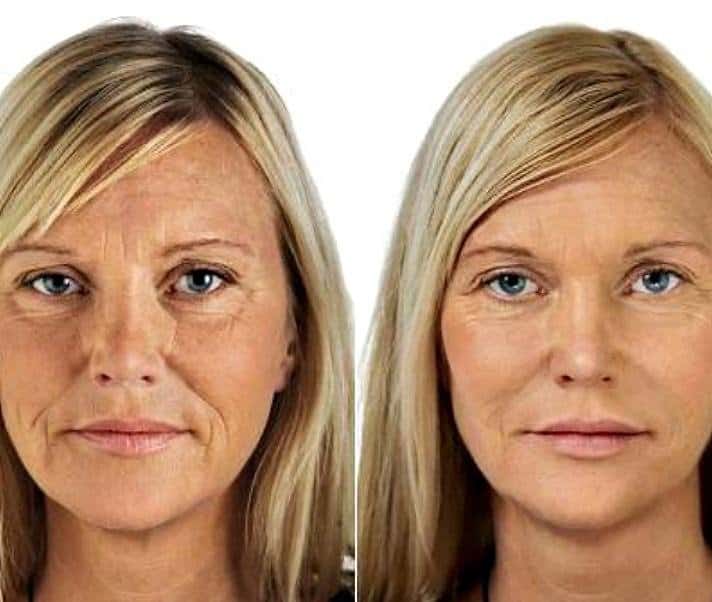Hyaluronic acid may not be the newest trend in skincare, but its longevity in the industry is a testament to its efficacy. Its ability to attract and retain moisture makes it a cornerstone in anti-aging products. Often misunderstood because of its name, hyaluronic acid is actually a gentle giant in the realm of skincare ingredients.
As consumers seek solutions for keeping their skin looking youthful, it’s important for us to highlight the proven performance of hyaluronic acid. It holds numerous benefits for skin health, helping to not only hydrate but also to address various skin conditions effectively, without the harshness typically associated with acids.
Chapter Overview
What is Hyaluronic Acid?
Hyaluronic acid (HA), a significant component within our bodies, thrives predominantly in connective tissues and various skin layers.
Properties and Location:
- Polysaccharide: HA is a naturally occurring polysaccharide.
- Connective tissue: Found extensively, it supports a range of tissues.
- Skin’s structure: Accounts for the skin’s moisture and resilience.
Functions:
- Moisture retention: It’s crucial for maintaining skin hydration.
- Elasticity: Contributes to the suppleness and plumpness of our skin.
Forms and Synonyms:
- Synonyms: Also referred to as hyaluronan or sodium hyaluronate.
- Molecular weight: Varies in weight; higher molecular weights are associated with various skin benefits.
Age-related Decline:
- With age: Our skin’s natural hyaluronic acid levels decrease, reducing its youthful appearance.
Therapeutic Uses:
- Topical application: Has the ability to enhance skin hydration and elasticity when used in skincare.
- Joint health: In articular cartilage, it’s a component of the matrix, alongside other substances such as collagen, chondroitin sulfate, and glucosamine.
Synovial Fluid:
- HA is abundant in synovial fluid, playing a key role in joint health by acting as a lubricant.
Broad Efficacy:
- Skin types: Beneficial for all skin types due to its versatile and gentle nature.
Possible Benefits
Hydrates your skin
We understand the crucial role that hydration plays in maintaining skin health. Our skin’s ability to retain moisture diminishes as we age, leading to dryness and various other symptoms such as flaking and sagging. By incorporating hyaluronic acid (HA), our skin can significantly improve its capacity to lock in moisture, providing a plump and hydrated appearance. We often integrate HA in our skin care routine using serums and creams to combat dehydration effectively.
- Key points:
- Enhances skin hydration
- Reduces dryness
- Improves skin texture
Reduce wrinkles
Our focus on anti-aging often leads us to explore how we can preserve skin elasticity and diminish the appearance of wrinkles. HA has shown promising results in making our skin look smoother with more refined textures. With regular use, anti-wrinkle serums and creams containing HA may show visible improvement within weeks. This is attributed to HA’s moisturizing benefits, which help to maintain skin elasticity and potentially reduce the signs of aging.
- Benefits:
- Moisturizes skin deeply
- Potentially improves skin texture
- May increase skin elasticity
Help with sores and sunburn
We consider healing as an essential property of any skin treatment. HA demonstrates significant potential in accelerating the healing process of sores and sunburns by hydrating affected areas and reducing inflammation. By keeping skin junctions tight, HA can support wound healing and reduce discomfort from sores and burns.
- Healing properties:
- Hydrates affected skin
- Supports tissue regeneration
- Controls inflammation
Lubricate achy joints
We recognize that joint health is critical for maintaining an active lifestyle. Hyaluronic acid serves not just our skin, but also lubricates and cushions our joints. Especially for those suffering from osteoarthritis, HA could provide relief from joint pain by acting as a lubricant and shock absorber, mitigating the effects of wear and tear on joints.
- Applications:
- Relieves joint pain
- Provides cushioning to joints
- Assists in maintaining joint health
Help for your eyes
When we consider the importance of eye health, HA emerges as a beneficial component in various eye treatments. It is instrumental during cataract surgery, providing an easier procedure and promoting successful outcomes. HA-based eye drops can also offer relief for conditions like dry eyes, enhancing overall eye comfort and health.
- Eye health advantages:
- Facilitates eye surgeries
- Alleviates symptoms of dry eyes
- Promotes healthy eye function
How it works
How to use
If your goal is to enhance skin hydration or reduce joint pain, hyaluronic acid (HA) can be utilized in various forms, including serums, creams, and supplements. We guide you through the recommended applications for different HA treatments:
Skin & Eye Applications:
- Injections: Administered by healthcare professionals, these help to add volume and hydrate. Consult with a dermatologist for the best course of action.
- Topical Products: Creams, serums, and lotions are available over-the-counter with varying HA concentrations. Select products with multi-sized HA molecules for diverse benefits.
- Eye Drops: For treating dry eyes, use hyaluronic acid drops typically 0.2 to 0.4 percent in concentration three to four times daily for optimal results.
Joint Relief:
- Oral Supplements: An 80mg daily dosage of HA supplements for eight weeks may benefit those with osteoarthritis.
- Dermal Fillers: Approved HA treatments exist specifically for knee osteoarthritis.
- Dosage for Adults: Consume 50mg of oral HA supplements once or twice a day, ideally with meals.
- Injection Treatments: Healthcare providers can administer HA injections to manage joint pain, often given on a weekly basis.
When considering HA treatments, always be mindful of potential allergic reactions and discuss possible side effects and interactions with a healthcare provider. This ensures you select a safe and effective method to meet your needs. Although over-the-counter options for HA are readily available, a prescription may be required for certain products or higher dosages.

